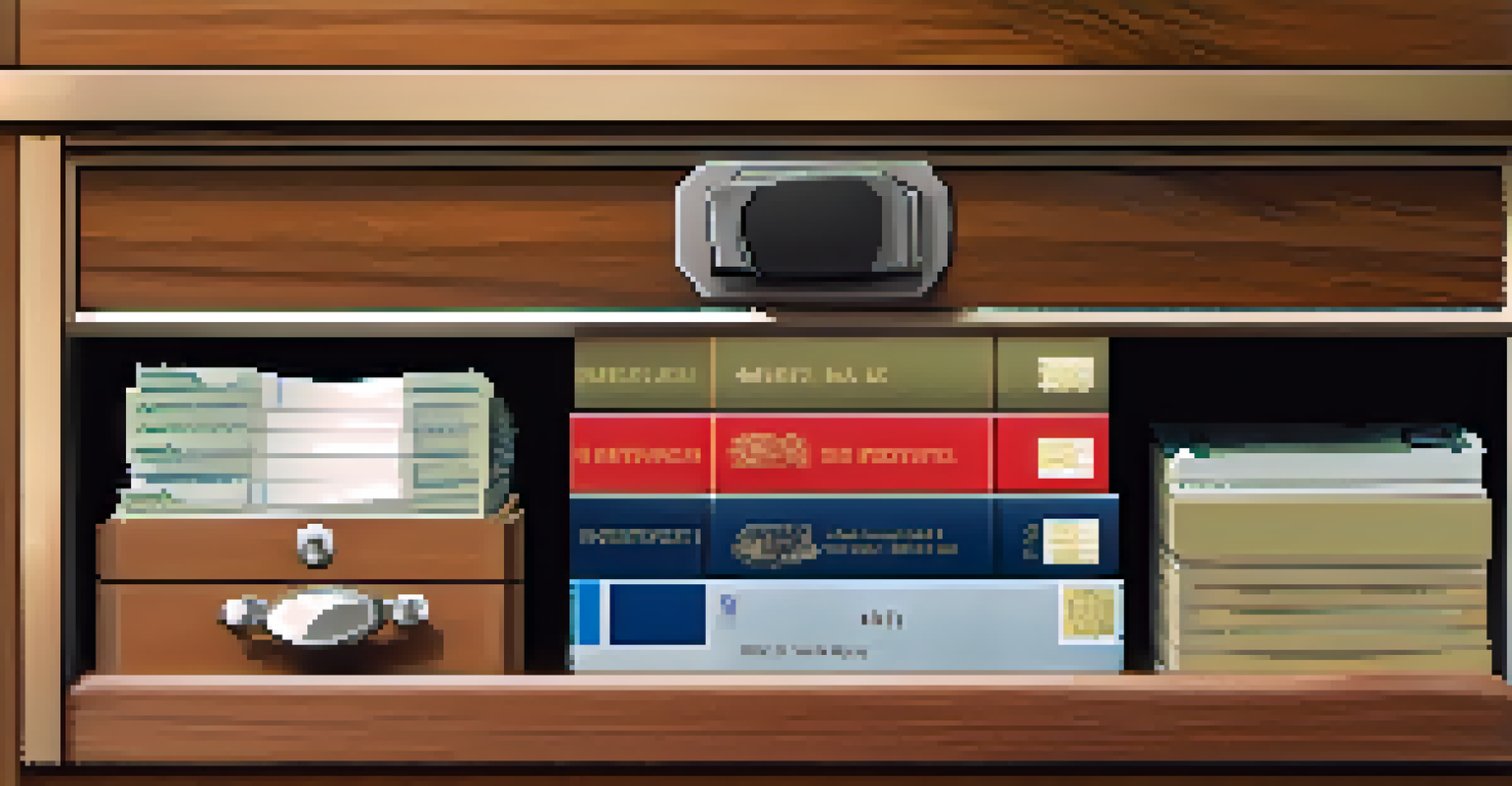Choosing Safe Accommodations: Tips for Secure Stays

Researching Accommodations: Start with the Right Tools
Before you even book a place, doing thorough research is crucial. Start by using trusted websites that aggregate reviews and ratings from previous guests. Look for platforms that offer detailed insights about safety features and neighborhood crime rates.
Safety isn't expensive, it's priceless.
You can also check social media platforms and travel blogs for firsthand accounts of other travelers' experiences. Often, these sources provide a more personal touch than standard reviews. Remember, a picture may be worth a thousand words, but a genuine review can be worth even more.
Lastly, don't underestimate the power of local forums or travel groups. Engaging with seasoned travelers in these communities can yield useful tips and real-time information about the safety of specific accommodations.
Location Matters: Choosing the Right Neighborhood
When selecting your accommodation, the location can significantly impact your safety. Aim for neighborhoods that are known for being safe, well-lit, and accessible. A vibrant area with plenty of foot traffic is often a good indicator of safety.

Consider proximity to local attractions, public transportation, and emergency services. If you're in a new city, utilize online maps to explore the area surrounding your accommodation. This can give you a clearer idea of what to expect upon arrival.
Research Thoroughly Before Booking
Utilize trusted websites, social media, and local forums to gather insights on accommodations and their safety features.
Lastly, trust your instincts. If a neighborhood feels off during your research, it might be worth considering other options. Your peace of mind is just as important as your budget.
Reading Reviews: What to Look For
Reading reviews is more than just checking the star rating. Pay attention to comments regarding the safety measures in place, such as security personnel or surveillance cameras. These details can give you a clearer picture of how the property prioritizes guest safety.
An ounce of prevention is worth a pound of cure.
Look for patterns in the reviews. If multiple guests mention a lack of safety or suspicious activity, it's a red flag. On the flip side, positive mentions of security features can provide peace of mind.
Don't forget to check the dates of the reviews as well. Recent reviews are often more relevant than older ones, especially in areas that may have changed significantly over time.
Booking Directly: Why It Can Enhance Security
When possible, consider booking directly through the accommodation's official website. This often ensures better communication regarding your stay and can lead to more transparency about safety practices. Plus, you might score exclusive deals or perks!
Direct communication with the property can also help you clarify any concerns regarding safety features, check-in procedures, and emergency protocols. This personal connection can be invaluable for peace of mind.
Choose Safe, Accessible Locations
Opt for well-lit neighborhoods with good foot traffic and proximity to local attractions to ensure your safety during your stay.
Additionally, booking directly often means you can bypass third-party service fees, which can save you money. A win-win situation indeed!
Understanding Safety Features: What to Expect
It's essential to know what safety features to expect in accommodations. Common safety measures include secure locks, in-room safes, well-lit entrances, and 24/7 front desk services. Familiarizing yourself with these can help you assess a property's commitment to guest security.
You might also want to inquire about emergency evacuation plans. Knowing a property's procedures in case of emergencies can provide additional peace of mind during your stay.
Finally, don’t hesitate to ask the staff about their safety protocols. A responsive team will be more than happy to explain the measures they have in place, ensuring you feel secure during your visit.
Trust Your Gut: Listening to Your Instincts
While research and reviews are invaluable, never underestimate the power of intuition. If something feels off about an accommodation, trust your instincts and consider other options. Your comfort and safety should always come first.
When you arrive, take a moment to assess your surroundings. Are there ample safety measures visible? Does the atmosphere feel welcoming? These cues can help you gauge whether you made the right choice.
Be Prepared for Emergencies
Familiarize yourself with emergency exits and procedures at your accommodation to enhance your safety while traveling.
Remember, it's okay to change your plans if a situation doesn't sit well with you. Prioritizing your well-being is the most important aspect of travel.
Keeping Your Belongings Safe: Practical Tips
Once you've settled in, it's crucial to take steps to secure your belongings. Use in-room safes for valuable items and keep your doors locked at all times, even when you're inside. This simple practice can significantly reduce the risk of theft.
Avoid leaving personal items in plain sight, especially if your room is accessible from the outside. A little discretion can go a long way in protecting your belongings.

Lastly, consider using travel insurance that covers theft. While it’s not a replacement for vigilance, it can provide added security should something go wrong during your stay.
Emergency Preparedness: Be Ready for Anything
Being prepared for emergencies can make all the difference during your travels. Familiarize yourself with the emergency exits and procedures of your accommodation as soon as you arrive. This knowledge can help you react quickly if needed.
Keep a list of emergency contacts handy, including local authorities and your country's embassy. Having this information at your fingertips can provide peace of mind and help you act swiftly in a crisis.
Lastly, don't hesitate to ask the staff about their emergency protocols. Knowing their procedures can help you feel more secure and aware of what to do in various situations.